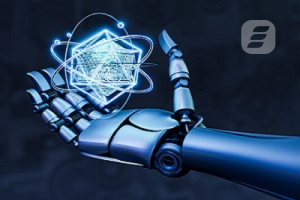Introduction
As technology continues to evolve, Generative AI has emerged as one of the most impactful advancements in the field of data science. For aspiring data scientists, understanding and mastering this innovative technology can be the key to unlocking new career opportunities. Whether you're working with automation, enhancing prediction models, or exploring new realms of content generation, Generative AI is poised to change the game.
What is Generative AI?
Generative AI refers to machine learning models that can create new content based on existing data. Unlike traditional AI, which focuses on analyzing data and making predictions, Generative AI goes a step further by generating new information, whether it’s text, images, music, or even code. Technologies like GPT (for text generation), DALL·E (for image generation), and Generative Adversarial Networks (GANs) have made waves in multiple industries, and the field continues to evolve at a lightning pace.
The Advantages of Mastering Generative AI
- Revolutionizing Automation
- Data synthesis:
Creating new datasets to augment existing ones.
- Feature engineering:
Automatically generating new features from raw data to improve model performance.
- Model tuning:
Generating optimal model parameters to enhance predictive accuracy.
- 2. Enhancing Prediction Models
- Data augmentation:
Generative AI can generate synthetic data that closely resembles real-world scenarios. This helps address the issue of limited or imbalanced data, especially in industries like healthcare or finance where gathering data can be expensive or time-consuming.
- Improved accuracy:
By generating diverse training examples, Generative AI can make models more robust, resulting in better generalization and more accurate predictions.
- Scenario simulation:
Generative AI models can simulate various future scenarios, allowing data scientists to test how their models would perform under different conditions and fine-tune their predictions accordingly.
- 3. Unleashing Content Generation Capabilities
- Text generation:
With models like GPT, data scientists can generate human-like text for reports, presentations, and even automated responses to customerqueries. This can save valuable time spent on manual content creation.
- Visual content generation:
Tools like DALL·E and GANs allow data scientists to generate high-quality images, which can be used in data visualization, marketing materials, and even in the creation of virtual environments for training AI models.
- Code generation:
Generative AI tools can automatically generate code for common machine learning algorithms or even assist in writing custom scripts, reducing development time and increasing efficiency.
Generative AI enables data scientists to automate tasks that would traditionally require human creativity and intervention. For instance, Generative AI can automate:
Mastering Generative AI allows data scientists to reduce the time and resources spent on repetitive tasks, enabling them to focus on higher-value work such as building predictive models or analyzing complex datasets.
While traditional machine learning methods can be highly effective, Generative AI adds an extra layer of sophistication by improving the quality of the predictions. Here's how:
For data scientists, developing expertise in using Generative AI to improve prediction models will give them a competitive edge in the job market.
Generative AI is transforming how content is created, making it faster, more efficient, and scalable. In the context of data science, content generation has several key applications:
Generative AI for content creation, aspiring data scientists can become invaluable assets to organizations, contributing to both technical and non-technical projects.
How Generative AI Shapes the Future of Data Science
As AI technologies continue to advance, the role of a data scientist is evolving. In the near future, Generative AI will be at the forefront of every data-driven solution. Data scientists who understand how to leverage Generative AI will not only be able to build smarter models but will also be positioned to lead innovation in industries such as healthcare, finance, entertainment, and beyond.
The ability to seamlessly integrate Generative AI into real-world applications will be one of the most sought-after skills for data scientists.
Conclusion
Generative AI isn’t just a buzzword—it’s a transformative tool that can shape the future of data science. From automating tedious tasks to enhancing prediction models and creating cutting-edge content, Generative AI is giving data scientists a whole new set of tools to work with. For aspiring data scientists, mastering Generative AI is more than just staying ahead of the curve—it’s about becoming a leader in a rapidly evolving field. As industries continue to embrace data-driven strategies, those equipped with the knowledge of Generative AI will be at the forefront of shaping the future.
At Eduinx, we are committed to empowering future data scientists by providing comprehensive programs that include in-depth training in Generative AI. With a focus on real-world applications and hands-on learning, our courses are designed to prepare you for a successful career in this transformative field.




